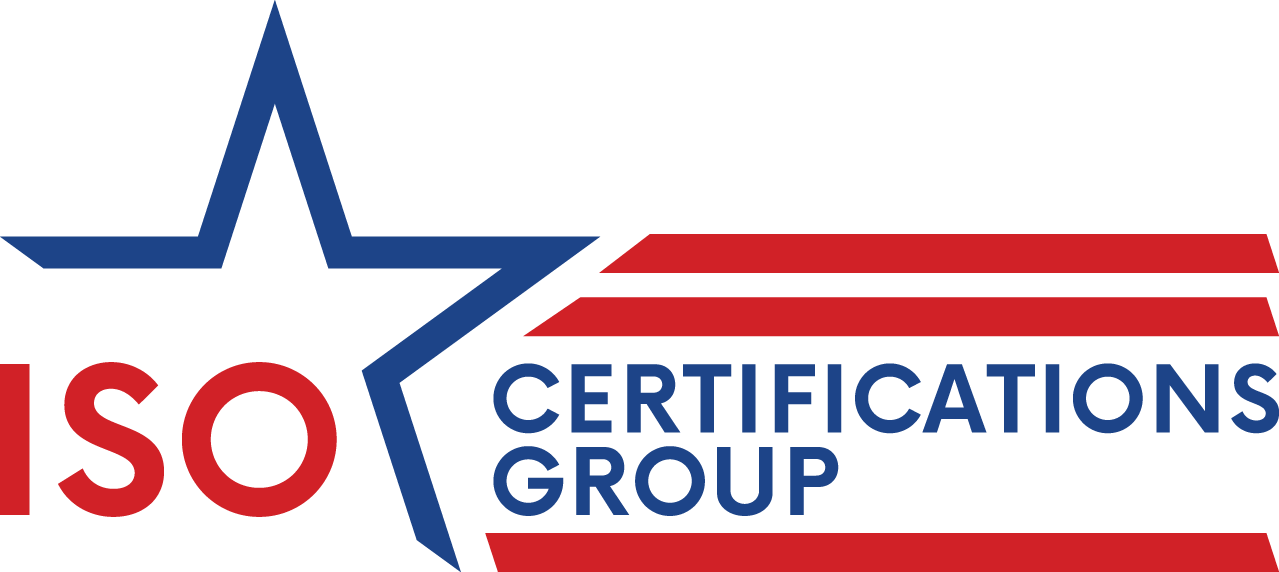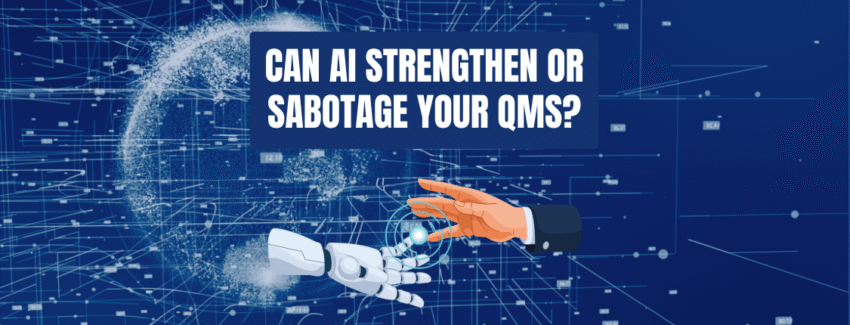Artificial Intelligence (AI) is making its way into nearly every corner of business, including areas you might not expect. While AI holds the promise of enhancing your ISO 9001 Quality Management System (QMS) through improved product quality, operational efficiency, and customer satisfaction, it also introduces new challenges that may not be immediately obvious. In this article, we’ll explore how AI can both support and complicate your path to ISO 9001 certification and what your organization should consider before embracing it.
The Benefits of AI on Your QMS
Data Analysis & Predictive Insights
Smarter Analysis: AI can rapidly process large volumes of quality data, uncovering patterns, trends, and issues in real time.
Proactive Prevention: Predictive analytics powered by AI can forecast potential quality problems, enabling you to take corrective action before issues arise.
Automation & Operational Efficiency
Task Automation: Repetitive tasks like data entry, document handling, and compliance tracking can be automated with AI, reducing human error and saving valuable time.
Optimized Resources: AI can help allocate personnel and equipment more efficiently, supporting consistent quality and productivity.
Enhanced Decision-Making
Informed Choices: AI delivers actionable insights that support data-driven decisions in quality planning, risk management, and resource allocation.
Real-Time Monitoring: Continuous tracking of key metrics allows for immediate response and ongoing improvement.
Quality Control & Inspection
Automated Quality Checks: Machine vision and AI-based image recognition can inspect products during manufacturing, detecting defects early and accurately.
Defect Reduction: Real-time defect detection ensures only high-quality products reach your customers
Regulatory Compliance
Simplified Documentation: AI can streamline the creation and maintenance of compliance reports and regulatory documentation.
Traceable Audit Trails: Built-in tracking features provide transparent audit trails, supporting easier and more reliable compliance audits.
Customer Feedback Analysis
Insight from Sentiment: AI tools can analyze customer feedback to uncover recurring issues, enabling faster and more targeted quality improvements.
Continuous Improvement
Data-Driven Refinement: AI supports continuous improvement by identifying long-term trends and opportunities based on accumulated quality data.
Potential Challenges
While AI offers significant advantages, it also introduces a range of challenges that organizations must carefully address to ensure successful integration into a Quality Management System (QMS):
Data Privacy and Security
AI systems often rely on large volumes of sensitive operational and customer data. Without robust data protection measures, organizations may be vulnerable to breaches or unauthorized access. Ensuring compliance with data privacy regulations such as GDPR or HIPAA is essential, especially when handling confidential quality or customer-related information.
High Implementation Costs
Integrating AI into an existing QMS requires a substantial investment in both time and resources. Costs can include purchasing or developing AI tools, updating infrastructure, and integrating new technologies with legacy systems. For small to mid-sized businesses, this can present a significant financial hurdle.
Employee Training and Change Management
AI implementation often requires a cultural and operational shift within the organization. Employees must be trained not only on how to use AI tools but also on how to interpret and apply AI-generated insights. Resistance to change, lack of understanding, or inadequate training can limit the effectiveness of AI in improving quality.
Ethical and Algorithmic Bias
AI algorithms can unintentionally introduce or perpetuate bias, especially if trained on incomplete or skewed datasets. This can affect decision-making processes within your QMS, leading to unfair or inconsistent outcomes. Additionally, ethical concerns such as transparency, accountability, and the potential for job displacement must be addressed with clear governance policies and communication strategies.
System Reliability and Oversight
AI models are not infallible. Overreliance on automated decision-making without human oversight can lead to errors being overlooked or misinterpreted. Maintaining a balance between automation and human judgment is critical to ensuring quality and compliance remain intact.
Conclusion: Consider Benefits and Challenges
AI has the power to enhance your ISO 9001 Quality Management System by improving efficiency, accuracy, and insight… but it’s not without risks! To make the most of AI’s potential, organizations must weigh the operational and strategic benefits against the challenges of data security, cost, training, and ethical use. With thoughtful planning and the right expertise, AI can be a valuable tool on your path to certification and long-term quality improvement.
At ISO Certifications Group, we make the certification process simple, cost-effective, and results-driven with transparent pricing and expert support through every step. We are trusted as a certification body by businesses in manufacturing, construction, healthcare, and more. Contact us today to get started.

